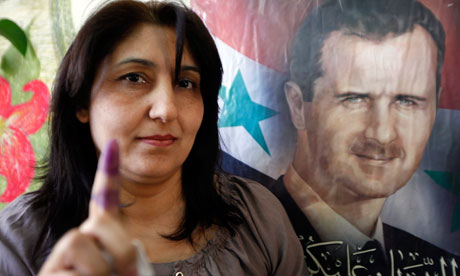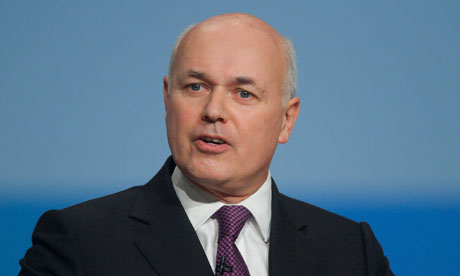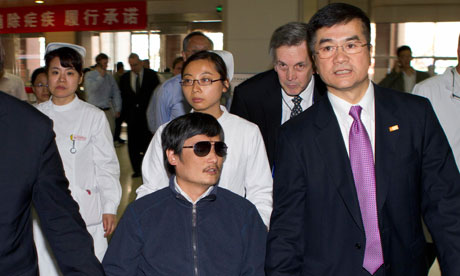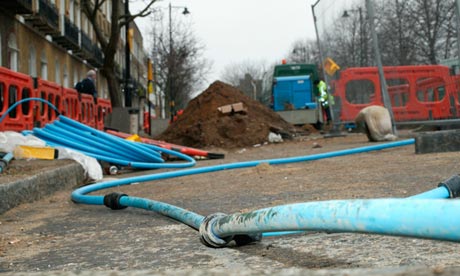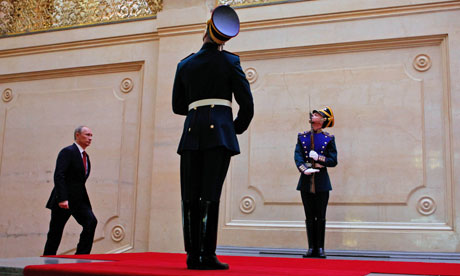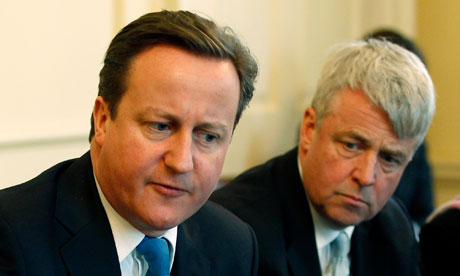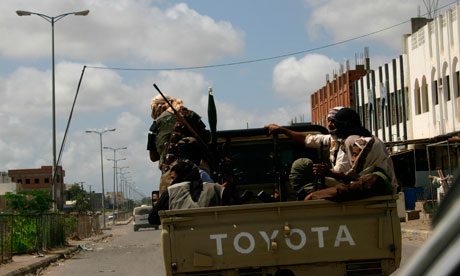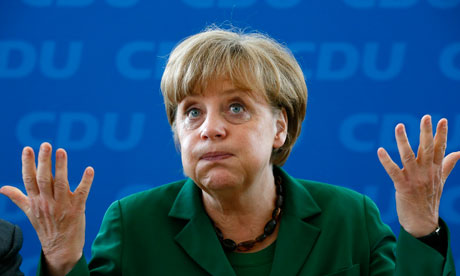Shooting of Roberto Adinolfi has similarities with 1970s attacks by Italian Red Brigades
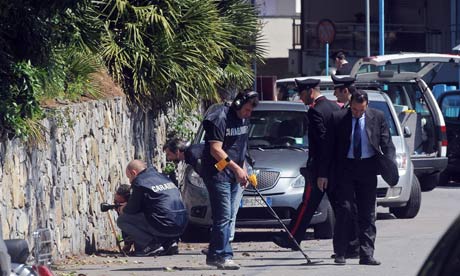

Police officers investigate the site where Roberto Adinolfi was shot. Photograph: Luca Zennaro/EPA
The head of an Italian nuclear engineering company was kneecapped by a gunman on Monday, evoking fears of a return to Italy's violent "years of lead" in the 1970s as the country sinks deeper into recession.
Roberto Adinolfi, the chief executive of Ansaldo Nucleare, was leaving his home in Genoa when a man wearing a motorcycle helmet shot him in the leg with a Tokarev pistol before escaping with an accomplice on a stolen black moped, which was later found by police.
Adinolfi's right knee was fractured in the attack but was he not in a serious condition.
Shooting victims in the legs was a speciality of the Italian Red Brigades, the terrorist organisation which sought to destabilise the Italian government with a series of kidnappings and murders, culminating in the snatching and killing of the former prime minister Aldo Moro in 1978.
The group also shot at three executives at companies in the Ansaldo group and kidnapped another in the 1970s, raising suspicions that Monday's shooting was designed to send a message.
"It is like they wanted to say: 'Let's start again like 40 years ago'," one source told Italian news agency Ansa, adding that the attack could be a signal to sleeper cells to launch their own operations.
Genoa's chief prosecutor, Michele Di Lecce, said he could not rule out that the shooting was an act of "terrorism" but added that no one had yet claimed responsibility.
Investigators were also quoted as saying they suspected far-left or anarchist groups, which are known to be active in Genoa and which recently advocated "armed action".
"We don't know who it was but I suspect it was a small group, possibly anarchists, rather than the Red Brigades, even if the continuation of the economic crisis increases the risk of the return to action of larger groups," Stefano Silvestri, a security expert at the Italian thinktank IAI, told the Guardian.
In December an Italian anarchist group claimed responsibility for a letter bomb sent to the headquarters of tax collection agency Equitalia, which nearly blinded a manager.
"If [anarchists] have not yet killed someone it is just by chance," Italy's senior police officer, Antonio Manganelli, warned a parliamentary hearing in February.
The shooting comes as the Italian prime minister, Mario Monti, seeks to lower Italy's soaring debt by increasing taxes and cutting pensions, just as the country's unemployment figures soar.
In the latest of a string of suicides linked to the economic crisis a 52-year old estate agent hanged himself in a playground near a primary school in Vicenza on Monday. Last week an armed man briefly took hostages at an Equitalia office near Milan in protest at taxes.
Monday's attack was "a worrying sign of growing tensions and violence", in Italy, said Pier Luigi Bersani, head of the centre-left Democratic party. "Light should be shed on this incident and democracy should be defended," he said, adding that Italy "has already paid a heavy price in blood".
As Italy's welfare and employment minister, Elsa Fornero, seeks to loosen Italy's rigid employment laws she has been placed under guard following the murders by the Red Brigades in 1999 and 2002 of two government advisers who also sought ways to allow firms to hire and fire more easily.
In 2003 two suspected Red Brigades members shot dead a policeman who asked for their documents on a train.
Finmeccanica, the state controlled Italian defence company which has a majority stake in Ansaldo Nucleare, is seeking to increase efficiency at group level by reducing staff numbers, prompting protests during which employees have blocked roads and railways.
Finmeccanica's chief financial officer, Alessandro Pansa, said the firm would not be "intimidated" by the shooting.

